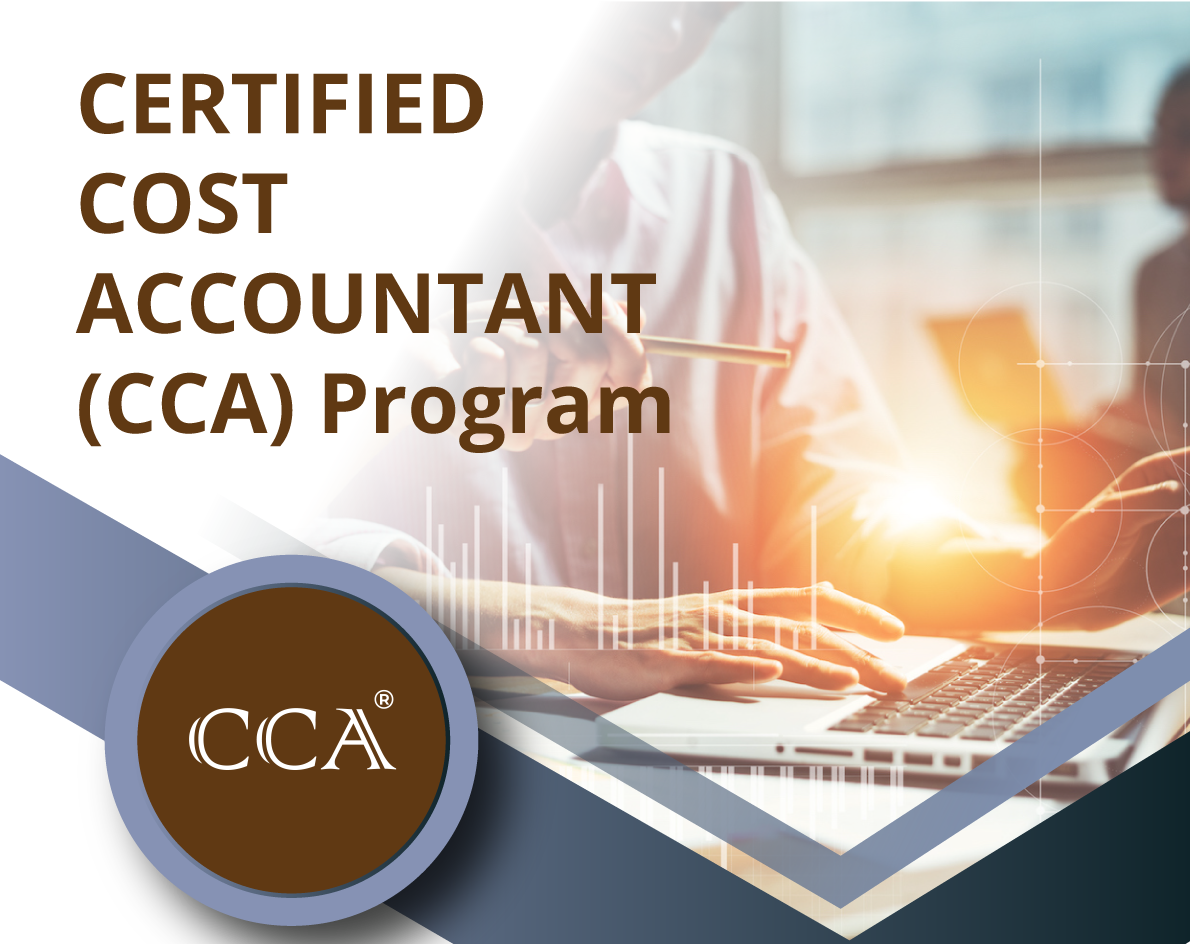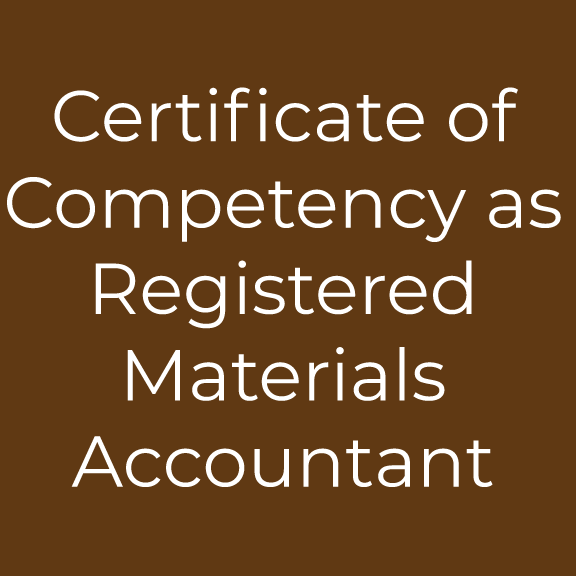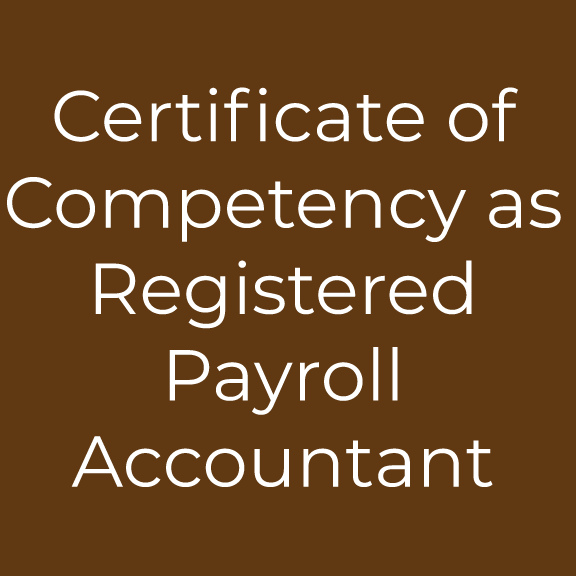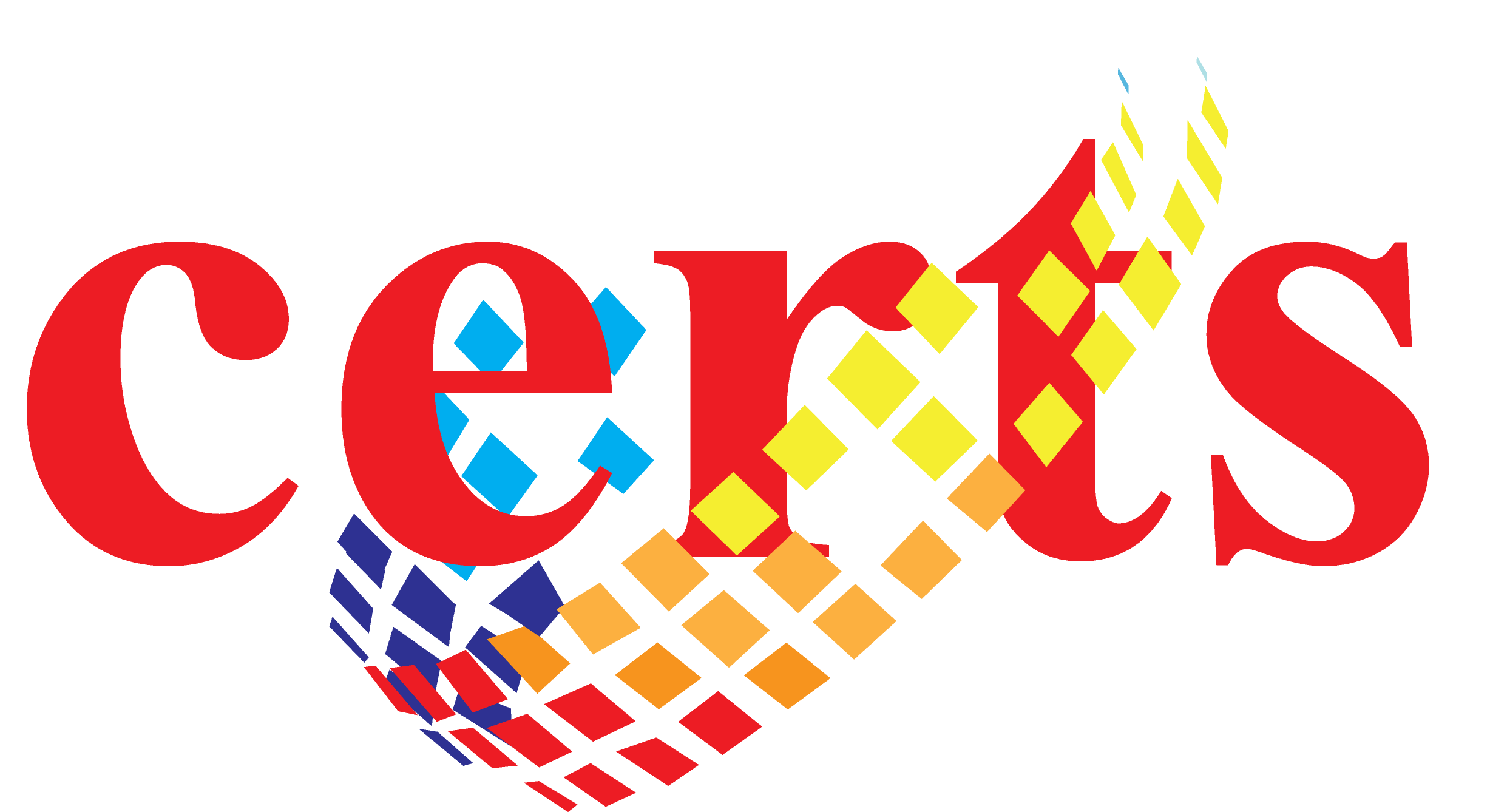
Training and Examination Fee
Student
per Level
Professional
per Level
Overview
CCA Level 1

CCA Level 2

CCA Level 3

Certified Cost Accountant
Manufacturing and service activities happen in business organizations. The amounts of resources employed in these events are normally substantial enough to justify the need for a separate and specialized accounting systems known as cost accounting. This system covers the functional areas of materials, payroll, and overhead in manufacturing processes. Each of these areas has unique characteristics necessitating the use of various models and techniques that require different sets of competence and skills.
The professional accountant having a competent understanding and skills in dealing with the complex operating activities of materials management is referred to as Registered Materials Accountant (RMA). This professional accountant has a know-how in materials warehousing, procurement, and asset management with specific competence in inventory records and controls. The professional accountant having competence in payroll accounting is referred to as Registered Payroll Accountant (RPA). This practice includes the areas of developing payroll systems and design, payroll recording, compliance to laws and regulations governing employee benefits, and payroll reporting activities. Another area of equal significance is the factory overhead management that is divided into fixed and variable overhead for profit planning and control. It deals with reasonable overhead allocation models as bases of providing a more relevant overhead accounting report. It focuses in understanding the details of the overhead account and applying thereon the control technique to contain its cost.
The sets of accounting skills related to the manufacturing processes is covered in the Certified Cost Accountant (CCA) title. This field of accountancy underlines accuracy in its recording and reporting processes. As such, its value to financial accounting and management accounting cannot be more emphasized.
Benefits of CCA
- Entitlement to the post nominal: CCA.
- Designation as:
- Certificate of Competency as Registered Materials Accountant
- Certificate of Competency as Registered Payroll Accountant
- Certified Cost Accountant
Course Outline
IAS 2 – Accounting for Inventories
Introduction to manufacturing accounting and its environment
Internal Controls for Materials
Materials Costing
- Accounting for materials purchases, discounts, and returns
- Accounting for freight-in
- Accounting for defective units and spoilage
- Accounting for lost units
Materials Records
- Periodic materials inventory system
- Perpetual materials inventory system
Materials Planning and Controls
- ABC system and other fundamental materials planning and control techniques
- Economic order quantity
- Reorder point
- Optimal safety stock
Materials Accounting using the Job Order Costing Systems
Basic Journal Entries in Materials Management
How to Get Certified
Training
Register for the CERTS training to gain access to learning resources such as video lectures, study notes, exercises, and assessments.
Attend the live Online Mentoring Session (OMS) as schedule to further refine your preparation.
Simulation Exam
Take the Simulation Examination (SimEx) as scheduled. It comprises of sixty (60) questions for three (3) hours. A learner must earn a rating of at least 35/60 to qualify for the Actual Examination. A learner who failed the SimEx may retake on the next schedule for a minimal fee.
Examination
Qualified candidates shall be indorsed for the CCA examination(s) as scheduled. The examination comprises of sixty (60) questions budgeted for three (3) hours. An examinee must earn a minimum rating of 75% to pass.
Title / Certification
Candidates who passed the CCA examination(s) may now apply for certification.
